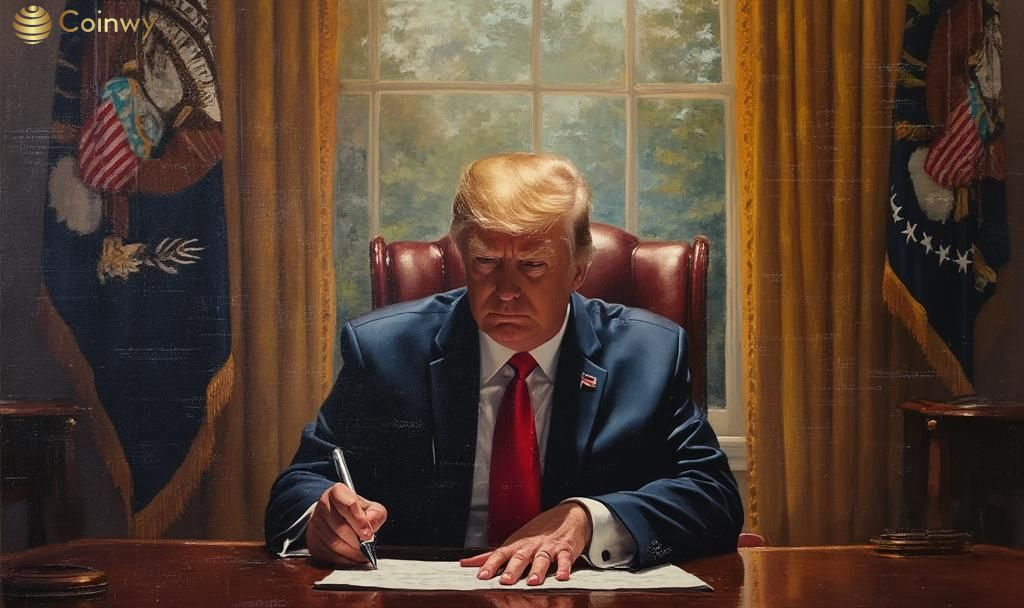- GENIUS Act signed into law by President Trump.
- U.S. leads in global digital currency regulation.
- New standards for stablecoin issuers in effect.
By requiring stablecoin issuers to maintain reserves in U.S. dollars, the GENIUS Act strengthens the U.S. dollar’s global position and promotes regulated digital asset markets.
The GENIUS Act brought new regulatory standards that require stablecoin issuers to be backed 1:1 with U.S. dollars. Signed by President Trump, this act is seen as a step towards solidifying America’s stance in the digital asset space.
President Trump played a pivotal role, engaging directly with Congress to ensure the bill’s passage. Industry leaders from Robinhood, Tether, and Gemini showed support by attending the signing, indicating a broader alignment with the Act’s directives.
“We worked hard. It’s a very important act, the GENIUS Act. They named it after me. I want to thank you. This is a hell of an act.” – President Donald J. Trump, 45th President, United States, CBS News
Immediate effects include reinforcing dollar dominance in stablecoin markets as only permitted issuers can operate legally in the U.S. This move may cause significant realignment within the crypto industry.
Financially, the act mandates stablecoin issuers hold reserves in U.S. Treasuries, providing a new inflow into government securities. Politically, it underscores U.S. commitment to digital currency leadership, setting precedents for future regulations.
Market participants anticipate a shift in value towards GENIUS-compliant stablecoins by 2028. Historically, similar legislation in the EU underscored the significant role regulatory frameworks play in shaping digital asset landscapes.






